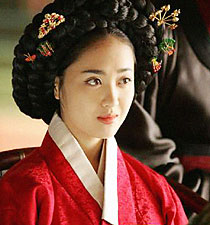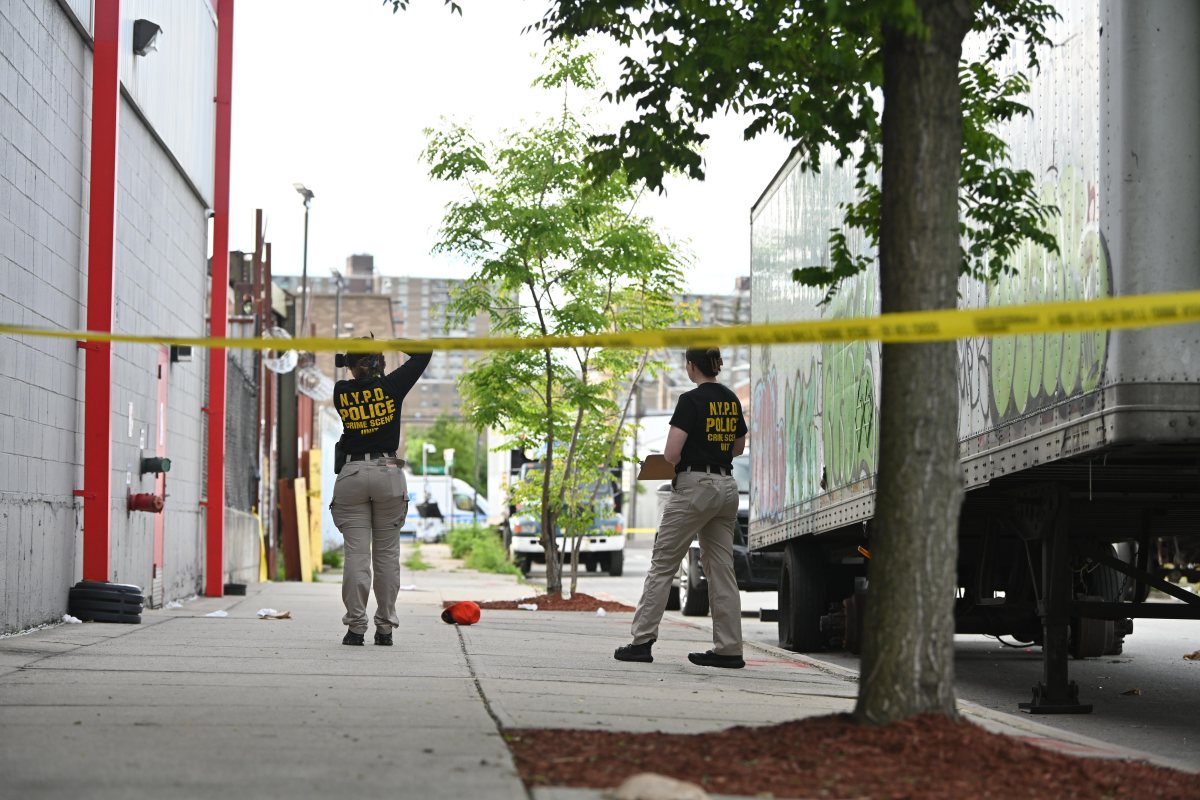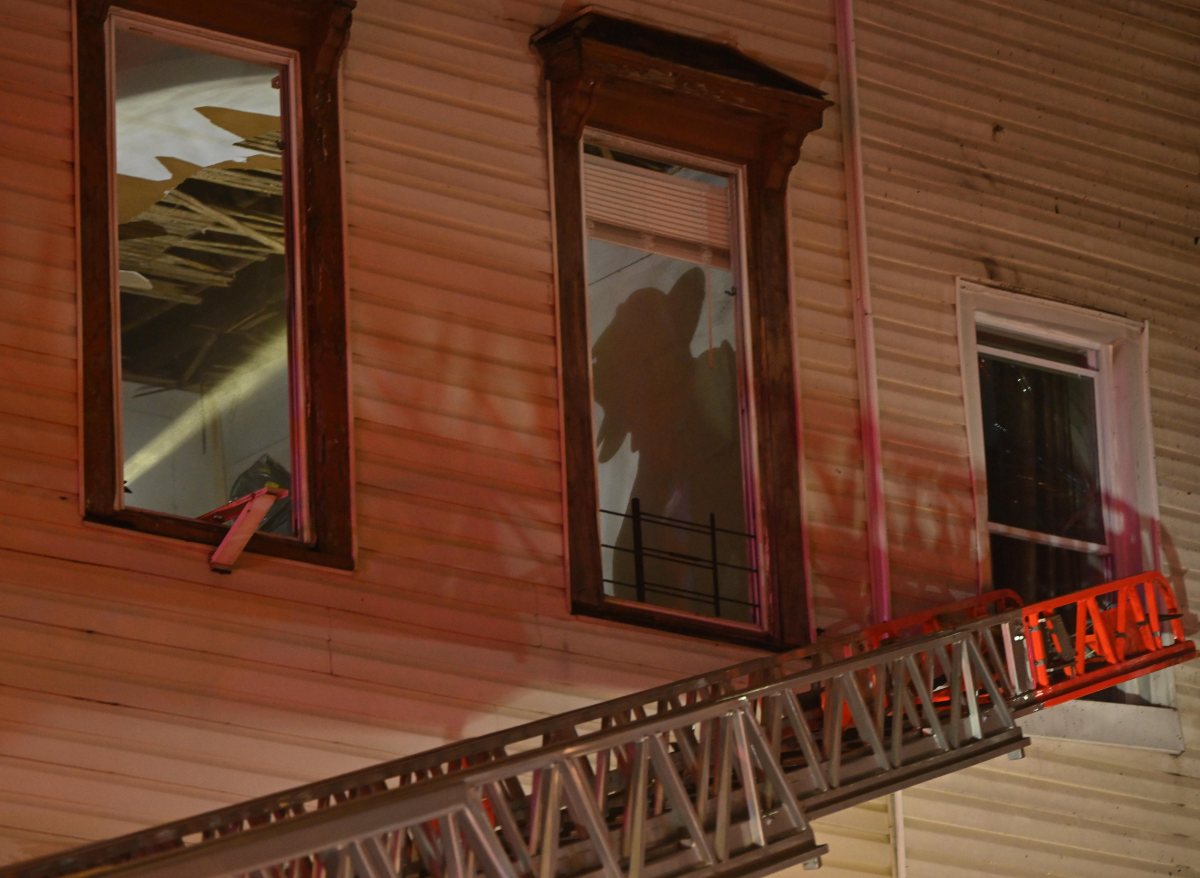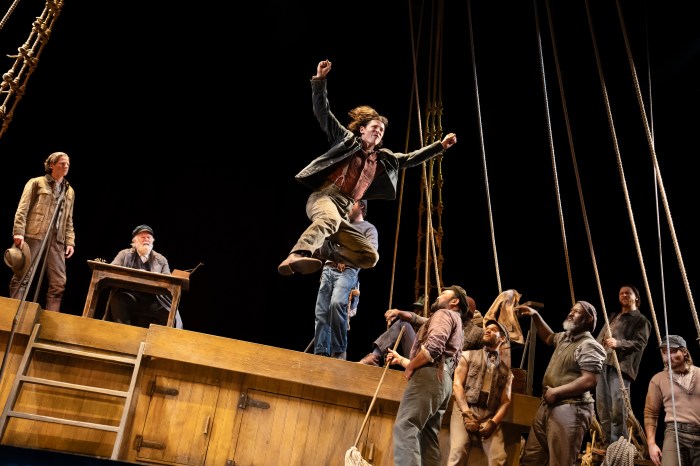Somewhere deep inside them, in some pessimistic
corner, the creators and fans are always anxiously waiting for
the other shoe to drop. But so far the renaissance of South Korea’s
cinema, which began in the late ’90s after almost three decades
of doldrums, is holding strong.
This is one of the relatively few local film industries thriving
in the face of the global Hollywood juggernaut. According to
the authoritative Darcy’s Korean Film Page (www.koreanfilm.org),
Korea has almost doubled its yearly output in a decade and local
movies now regularly capture over 50 percent of the annual box
office despite Harry Potter, Superman and all their ilk.
It also, incidentally, turns out some awfully good movies.
By now it’s a tradition for BAMcinematek to host one leg of the
New York Korean Film Festival; the fourth annual visitation spans
Aug. 30-Sept. 3 (preceded by screenings at other venues in Manhattan).
But in all the attention paid to Korean film’s present, its past
is virtually unknown to most of the world, and not enormously
appreciated even at home. This year, the fest programmers have
decided to do something about that with a retrospective section,
a feature they hope to make a regular part of the NYKFF.
The eight recent selections at BAM will be joined by four classics
from recently rediscovered director Lee Man-hee: the macabre
thriller "The Devil’s Stairway" (1964; screens Aug.
30) and the melodramas "Water Mill" (1966; Aug. 30),
"A Road to Return" (1967; Aug. 31), and "A Way
to Sampo" (1975; Aug. 31).
Sueyoung Park-Primiano, a doctoral candidate at New York University
specializing in Korean film, will lecture on Lee at the Korea
Society on Aug. 29. Commenting via e-mail, she says that it was
Lee’s 1967 gangster film "The Starting Point" that
"shifted my interest from contemporary Korean films to 1950s
and 1960s Korean cinema. Until then, I thought most of the older
films were weepy melodramas with obvious genre conventions, but
within the first few minutes, I was gripped by the narrative
and the fast action editing."
In a mere 15-year career, Lee directed 51 movies (of which roughly
24 are known to survive); he succumbed to cirrhosis and cancer
while working at the editing table on "Way to Sampo."
"He was generally known to be a commercially popular filmmaker,"
continues Park-Primiano, "but he was also respected as an
artistic filmmaker by his contemporaries and film critics. He
excelled in many genres, and I suspect this is one of the reasons
why he may not have been studied as an auteuruntil now of course.
I know of at least two Korean scholars whose dissertation topic
is on Lee."
The popularity and acclaim of Lee’s war sagas and crime stories
"opened the door to his experiments with social dramas that
explored the lives of the disenfranchised and the low life."
Two sides of this coin are well demonstrated by "Water Mill"
and "Road to Return," which use widely differing settings
– a rural village in the historical past and the contemporary
middle-class city – to portray marriages broken down by outside
social stresses and eventual infidelity. For all the soap operatic
qualities, they’re both marked by an exquisitely sensitive eye
for the way the characters fit into a landscape or a cityscape
that overwhelms them, just as societal convention does.
Moving from Lee’s ’60s movies to those from the past year or
so is like journeying to another planet. The rigid familial and
romantic proprieties give way to a world of footloose singles
searching for their mates via cell phone and Internet dating
in "My Scary Girl" (2006; Sept. 1) and "Wedding
Campaign" (2005; Sept. 3). Each attempts, with fair success,
to put a new spin on current Korean cinema’s most heavily exploited
genre, the romantic comedy. The former movie folds in murder
and farcical efforts at corpse disposal; the latter explores
the little-known world of the substantial Korean diaspora in,
of all places, Uzbekistan. ("Rules of Dating" (2005),
playing Sept. 2, also takes a crack at the formula).
Koreans abroad are examined to very different effect in "Grain
in Ear" (2005; Sept. 3), a co-production with China about
a Korean-Chinese single mother ground down by her life in a bleak
industrial town. The Lee Man-hee approach of infusing social
comment with narrative and visual fire is eschewed in favor of
the stark minimalism that seems obligatory in socially conscious
art films from Asia these days – though the shocking final twist
is worthy of him.
The eclecticism of the Korean renaissance is further testified
by the psychological character study-cum-romance "The Charming
Girl" (2005; Sept. 1); the animated science fiction adventure
"Robotech: The Shadow Chronicles" (2006; Sept. 3),
a continuation of the internationally popular TV series; and
"The Aggressives!" (2005; Sept. 3) about the relationships
among a group of teenage in-line skaters.
One of the most intriguing of the new batch is director Kim Dae-woo’s
"Forbidden Quest" (2006; Sept. 2) – a lavish costume
film about porn in Korea’s feudal past. Following an aristocratic
scholar as he plunges into the underground world of illegal (and
enormously popular) erotic literature, it shows unquenchable
human urges battling cruel repression and makes it look like
fun. Vigorous to a fault, funny, sexy, touching and occasionally
violent, it might have made Lee Man-hee proud if he had lived
to see it.
"The 2006 New York Korean Film
Festival" plays Aug. 30-Sept. 3 at BAM Rose Cinemas (30
Lafayette Ave. at Ashland Place in Fort Greene). Admission is
$10, or $7 for seniors, students with ID (Monday-Thursday) and
children. For more information, call (718) 636-4100 or visit
the Web site www.bam.org. Complete festival schedule and related
events at www.KoreanFilmFestival.org.
Sueyoung Park-Primiano will speak on the life and films of Lee
Man-hee on Aug. 29 at 6:30 pm at the Korea Society, 950 Third
Ave. at 57th St., eighth floor in Manhattan. Admission is $5.
For more information, call (212) 759-7525.























